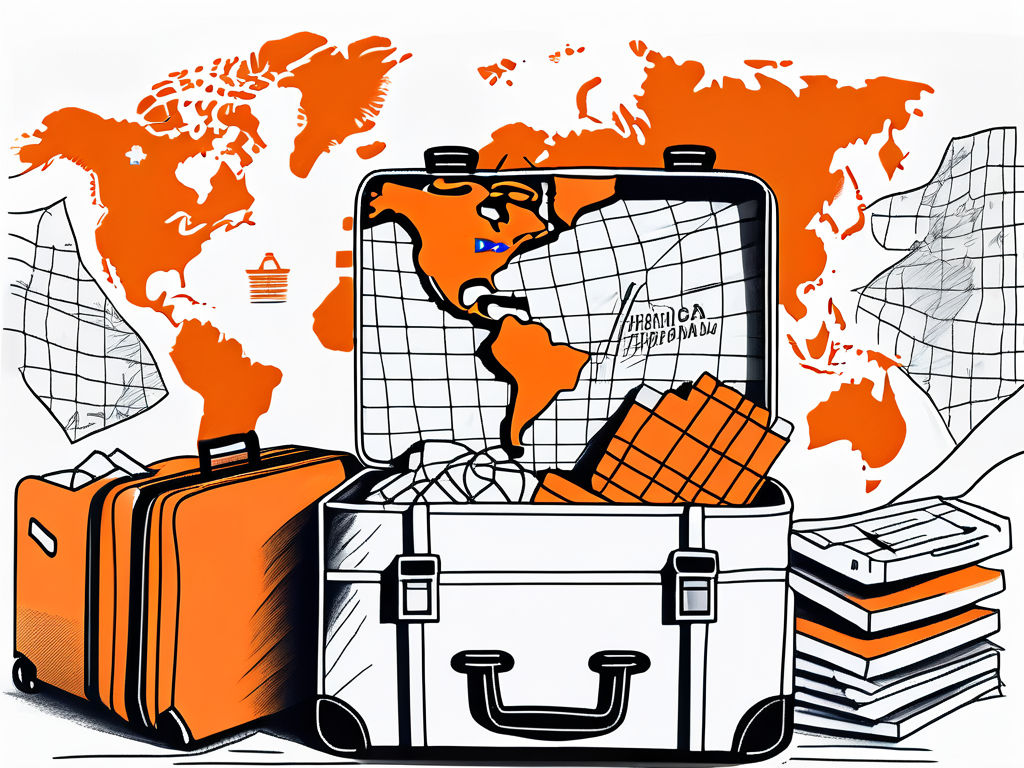Relocating to another country is an exhilarating adventure that offers new opportunities and experiences. However, it is also a significant financial undertaking. Understanding the costs associated with international relocation is crucial for anyone considering this important life decision. This article aims to provide an in-depth overview of what to expect, the factors that influence costs, hidden expenses, and strategies to manage your relocation budget effectively.
The Basics of International Relocation
Defining International Relocation
International relocation refers to the process of moving one’s residence from one country to another. This transition encompasses various aspects, including arranging for the transport of personal belongings, securing a new place to live, and adapting to a new culture. Unlike domestic moves, international relocations involve navigating complex bureaucratic processes, including visas, work permits, and customs regulations.
The scope of an international move can vary significantly based on the distance between the originating and destination countries, the amount of belongings being transported, and the specific services required from relocation agencies. Understanding these factors is essential for anticipating potential costs. Additionally, it is crucial to consider the emotional and psychological impacts of such a significant change. Moving to a new country often means leaving behind familiar surroundings, friends, and family, which can lead to feelings of isolation and homesickness. Preparing for these emotional challenges is just as important as managing the logistical aspects of the move.
The Importance of Financial Planning for Relocation
Financial planning is foundational to a successful international relocation. It is essential to establish a comprehensive budget that outlines all expected expenses. This includes direct costs such as shipping fees and indirect costs such as emotional adjustments. A well-thought-out financial strategy can help mitigate stress and ensure that unexpected expenses do not derail your plans.
Start by gathering estimates from various moving companies as well as researching the cost of living in your new location. This should inform your financial expectations and allow you to plan accordingly. Furthermore, consider additional expenses that may arise, such as international health insurance, which is vital for ensuring access to medical care in your new country. Currency exchange rates can also fluctuate, impacting your budget, so it is wise to monitor these rates and plan for potential changes. Moreover, setting aside a contingency fund can provide a safety net for unforeseen expenses, allowing for a smoother transition into your new life abroad.
Factors Influencing the Cost of International Relocation
Cost of Living in the Destination Country
The cost of living is a crucial factor influencing international relocation expenses. Countries have varying costs associated with housing, food, transportation, and utilities. Major metropolitan areas often present higher living costs compared to rural locales. Consequently, it is advisable to conduct thorough research on the living expenses in your chosen destination.
Moreover, fluctuations in exchange rates can impact your overall expenses. Utilizing cost of living calculators can help you gain insights into how far your salary or savings will stretch in your new environment. Additionally, it’s important to consider the local purchasing power; a higher salary in a new country may not equate to a better standard of living if the costs of everyday items are significantly higher. Understanding local customs and lifestyle choices can also provide a clearer picture of what to expect financially.
Transportation and Shipping Expenses
Transporting your belongings across international borders can be one of the most significant expenses during a relocation. The cost of shipping depends on various factors such as the volume of goods, the shipping method (air freight or sea freight), and the distance to be covered. Each option comes with its own set of costs and timelines.
Utilizing a professional moving service can provide peace of mind, though it may come with a higher price tag. Be sure to request multiple quotes and consider both the prices and the services included to make an informed decision. Additionally, it’s wise to assess the potential costs of insurance for your belongings during transit, as this can safeguard against loss or damage. Some companies also offer packing services, which can save time but should be factored into your overall budget as well.
Immigration and Legal Fees
Another critical aspect of international relocation involves navigating immigration laws and obtaining the necessary documentation. This may include visa applications, work permits, and residency permits, each accompanied by processing fees that can vary significantly by country.
It can be beneficial to consult with an immigration attorney to understand applicable laws and avoid potential missteps, though this could add to your overall costs. Investing time to be informed about immigration requirements can ultimately save money and unnecessary delays during your move. Furthermore, some countries may require health insurance or proof of financial stability as part of the visa application process, which can add additional layers of expense. It’s also prudent to familiarize yourself with local laws and regulations that may affect your stay, as compliance can prevent costly fines or legal issues down the line.
Hidden Costs of International Relocation
Unexpected Housing Costs
While many individuals plan for housing expenses when relocating, there are often hidden costs that can arise. For example, security deposits, utility connection fees, and property taxes can sneak up on newcomers.

Before signing a lease, it’s prudent to clarify all potential fees and understand the local housing market. This knowledge will help you avoid surprising costs that could impact your financial plan.
Health and Insurance Costs
Healthcare can vary widely from one country to another, both in quality and cost. As such, understanding your health insurance options is vital. Ensure that your plan covers international health services, and factor in potential out-of-pocket expenses.
Furthermore, you may need to undergo specific health screenings or vaccinations, which can add to your relocation budget. Planning for these health-related expenses can mitigate financial strain once you arrive at your new location.
Cultural Adaptation Expenses
Aside from tangible costs, there are also expenses related to cultural adaptation. Learning a new language or custom often comes with costs associated with classes, materials, and social events.
Integrating into a new community may entail joining clubs or attending cultural events, which can also impact your budget. Recognizing and allocating funds for these cultural experiences can enrich your new life abroad.
Ways to Manage Your Relocation Budget
Research and Planning
Effective research and planning are crucial for managing your relocation budget. Begin your research early, comparing costs in your new country and searching for resources that can help reduce expenses. Create a detailed itemized budget that includes expected costs as well as contingencies for unexpected expenditures.
Utilizing online forums and expat groups can provide valuable insights. Existing expatriates often share their experiences, tips, and recommendations that can benefit newcomers.
Negotiating Relocation Packages
Whether you are relocating for work or personal reasons, it is worth inquiring about relocation packages, especially if your employer is involved. Many companies offer relocation assistance, which can cover shipping costs, temporary housing, and other expenses.
Do not hesitate to negotiate the terms of your package. Demonstrating the value you bring to the organization can strengthen your position during negotiations, potentially resulting in a more favorable outcome.
Saving on Moving Costs
There are multiple strategies to save on moving costs during your international relocation. Here are a few practical tips to consider:
- Declutter your belongings before the move to reduce shipping costs.
- Get quotes from several moving companies to find competitive rates.
- Consider the timing of your move; off-peak seasons may offer lower rates.
- Look into sharing a shipping container with others going in the same direction.
By implementing these strategies, you can significantly cut down on costs and streamline your relocation experience.
In conclusion, understanding the intricate costs of international relocation is essential for planning a successful move. By being informed about the various expenses and employing effective budgeting strategies, you can embark on your new adventure with confidence and peace of mind.
















